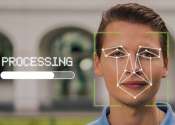Researchers estimate it takes approximately 1.5 megabytes of data to store language information in the brain
A pair of researchers, one with the University of Rochester the other the University of California has found that combining all the data necessary to store and use the English language in the brain adds up to approximately ...









